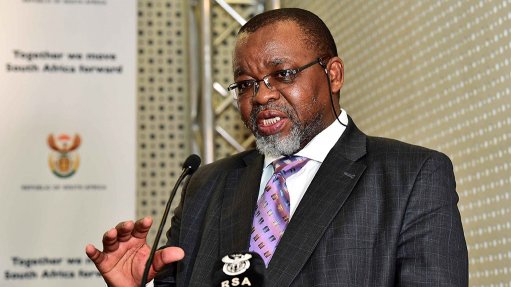
Minister of Mineral Resources and Energy, Gwede Mantashe
The repeated failure by the Minister of Mineral Resources and Energy, Gwede Mantashe, to table an updated Integrated Resource Plan (IRP) has been enabled by the indifference of his Cabinet comrades who have failed to hold him to account for stalling South Africa’s energy policy. President Cyril Ramaphosa’s Cabinet should now bear collective responsibility for creating policy uncertainty on energy security at a time when the country is going through an economy-stunting electricity crisis.
Mantashe has missed several self-imposed deadlines to release an updated IRP, a failure for which he has faced no real consequences. The lethargic approach by Mantashe towards a new IRP is hardly surprising – he has made it his life mission to stall South Africa’s adoption of a renewable energy fueled future. He is aware that a credible IRP should place greater emphasis on renewable energy and enable and expedite a just energy transition, something which is at variance with his avowed preference for fossil fuels.
Without an updated IRP, South Africa will be forced to continue relying on the outdated energy assumptions of IRP 2019 that do not reflect what must be done to address the ongoing electricity crisis. It boggles the mind that Ramaphosa has been quick to establish a national crisis committee and energy task teams but has failed to show the same zeal in expediting South Africa’s electricity generation roadmap through the IRP.
Failure to produce an updated IRP has exposed the misplaced priorities of the Cabinet. On one hand they regularly call for increased private sector investment in the energy sector and the transmission grid, yet on the other they are failing to provide the necessary policy certainty to guide these investments. It confirms the widely held view that the ANC government has become the single largest impediment and obstacle to energy security in South Africa.
The DA holds the brief that an updated IRP should reflect South Africa’s current energy realities and projected energy demands
by:
1. Increasing projections on electricity that can be generated from renewable energy sources to reflect increasing capacity from IPPs who have been approved in all the bid windows;
2. Changing baseline assumptions on baseload from coal and nuclear towards renewable energy sources and dispatchable batteries;
3. Institutionalising rooftop solar as a key source of embedded power generation;
4. Opening up the energy generation market from a single seller to a multi-seller dispensation to facilitate competition and price rationalisation; and
5. Increasing investment in grid capacity to support IPP projects.
Even with lack of policy clarity at national level, DA run governments have taken the lead in implementing key interventions to address loadshedding. The City of Cape Town is the leading metro in South Africa that has facilitated the rapid expansion of embedded generation at household and businesses. In a few years' time, most DA-run municipalities will be free from the failing Eskom monopoly and set on a firm path towards a sustainable energy future.
Issued by Kevin Mileham MP - DA Shadow Minister of Energy